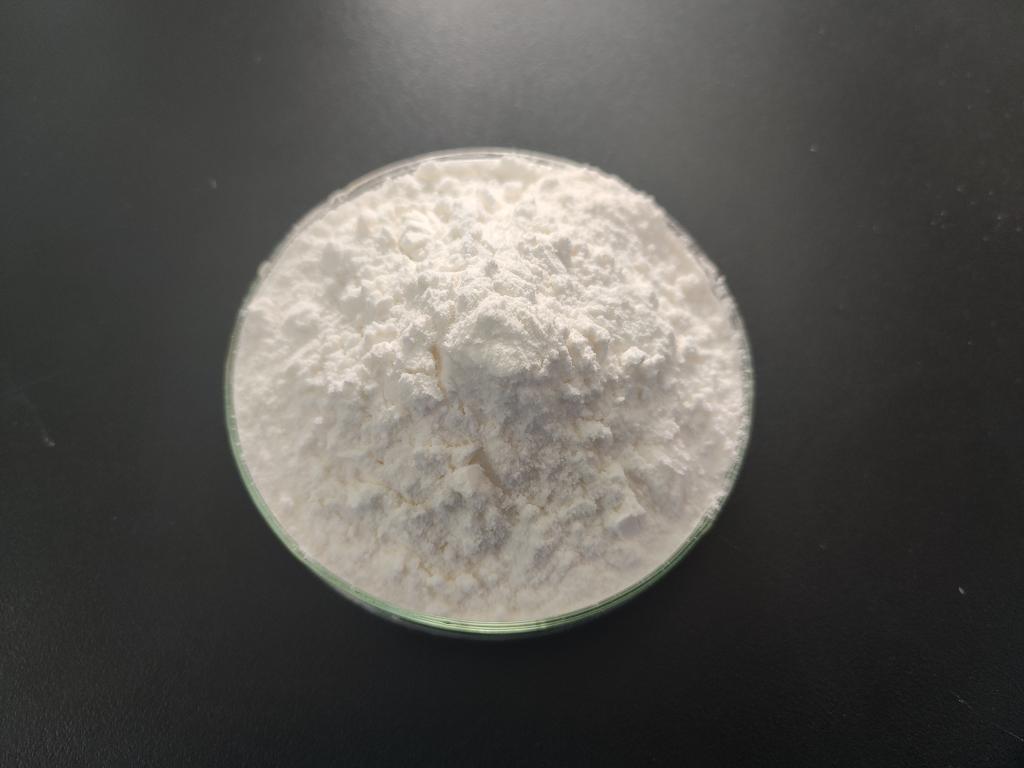Tel:+8618231198596

News
 CONTACT
CONTACT
 CONTACT
CONTACT
- Linkman:Linda Yao
- Tel: +8618231198596
- Email:linda.yao@dcpharma.cn
- Linkman:CHARLES.WANG
- Department:Overseas
- Tel: 0086 0311-85537378 0086 0311-85539701
News
Current Position:
Home >
News
>Empowering Farmers: ε-Polylysine Hydrochloride and its Role in Agriculture Education
Empowering Farmers: ε-Polylysine Hydrochloride and its Role in Agriculture Education
TIME:2023-12-14
The Agricultural Landscape: Challenges and Opportunities
Modern agriculture grapples with challenges such as declining soil health, pest resistance, and the need for resource-efficient practices. Balancing the demand for increased yields with environmental sustainability requires innovative approaches. ε-Polylysine hydrochloride, a natural antimicrobial compound, holds promise in addressing some of these challenges.
ε-Polylysine Hydrochloride: An Overview
ε-Polylysine hydrochloride is a biodegradable and non-toxic antimicrobial compound derived from natural sources, primarily through fermentation processes. It exhibits broad-spectrum antimicrobial properties against bacteria, fungi, and certain viruses. The compound's safety and eco-friendly characteristics make it an attractive option for agricultural applications.
Combatting Plant Diseases: The Protective Role of ε-Polylysine
Plant diseases caused by bacteria and fungi pose a significant threat to crop yields. ε-Polylysine hydrochloride has demonstrated efficacy in inhibiting the growth of various pathogens, providing a protective shield for plants. Its unique mode of action disrupts the cell membranes of pathogens, offering a natural and sustainable alternative to synthetic pesticides.
Eco-Friendly Pest Management: Reducing Reliance on Chemicals
Excessive use of chemical pesticides has raised concerns about environmental pollution, harm to non-target organisms, and the development of pesticide-resistant pests. Educating farmers about integrated pest management (IPM) practices that incorporate ε-polylysine hydrochloride can contribute to a more sustainable and eco-friendly approach to pest control.
Soil Health and Plant Nutrition: ε-Polylysine's Impact
Soil health is fundamental to agricultural productivity, and maintaining a balance between soil-borne pathogens and beneficial microorganisms is crucial. ε-Polylysine hydrochloride's antimicrobial properties can be harnessed to create a conducive soil environment by suppressing harmful microbes, thus promoting the growth of beneficial microorganisms and enhancing nutrient availability for plants.
Agricultural Education: A Catalyst for Sustainable Farming
Empowering farmers with knowledge is integral to the successful adoption of innovative agricultural practices. Agricultural education programs that incorporate information about ε-polylysine hydrochloride provide farmers with the skills and understanding needed to integrate this natural compound into their farming practices effectively.
Training Programs and Workshops: Hands-On Learning
Hands-on training programs and workshops play a pivotal role in agricultural education. These initiatives can include demonstrations of ε-polylysine hydrochloride applications, discussions on its benefits, and practical exercises that allow farmers to experience firsthand its impact on crop health and productivity.
Collaborations with Agricultural Extension Services
Engaging with agricultural extension services is essential for disseminating knowledge about ε-polylysine hydrochloride. Extension officers can serve as conduits for information, working directly with farmers to provide guidance on incorporating this natural compound into existing farming practices.
Case Studies: Realizing the Benefits of ε-Polylysine in Agriculture
Highlighting successful case studies where farmers have effectively used ε-polylysine hydrochloride can serve as inspiration and motivation for others. These real-world examples demonstrate the tangible benefits in terms of increased yields, reduced reliance on chemical inputs, and improved sustainability.
Overcoming Challenges: Addressing Concerns and Misconceptions
The successful adoption of ε-polylysine in agriculture requires addressing any concerns or misconceptions farmers may have. Clear communication about its safety, efficacy, and environmental benefits is crucial. Research studies and data demonstrating the compound's positive impact can play a pivotal role in dispelling any doubts.
Regulatory Considerations: Navigating Approvals
As ε-polylysine hydrochloride gains traction in agriculture, navigating regulatory landscapes is paramount. Collaboration between researchers, industry stakeholders, and regulatory bodies is crucial to streamline the approval process and ensure that farmers can access and use this natural compound within established guidelines.
Future Prospects and Innovations
Continued research and innovation in the field of ε-polylysine hydrochloride hold the key to unlocking its full potential in agriculture. Future developments may include optimized formulations, advanced delivery systems, and novel applications that further enhance its efficacy and ease of use.
Conclusion
Empowering farmers with knowledge about ε-polylysine hydrochloride represents a significant step towards sustainable and eco-friendly agriculture. By incorporating this natural antimicrobial compound into educational programs, farmers gain the skills and understanding needed to address challenges related to plant diseases, pests, and soil health. As the agricultural industry embraces innovation, ε-polylysine hydrochloride stands as a beacon of hope, offering a promising pathway towards a more resilient, sustainable, and productive future for global farming communities.
- Tel:+8618231198596
- Whatsapp:18231198596
- Chat With Skype







